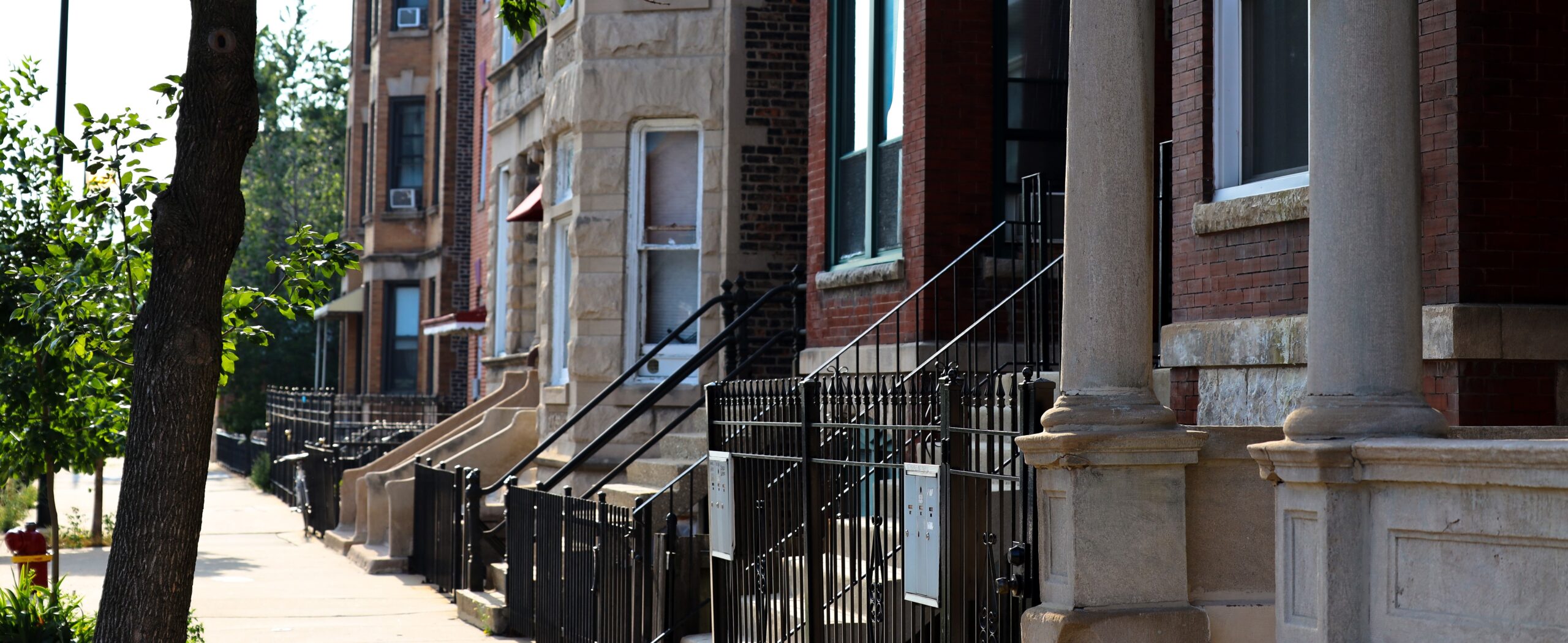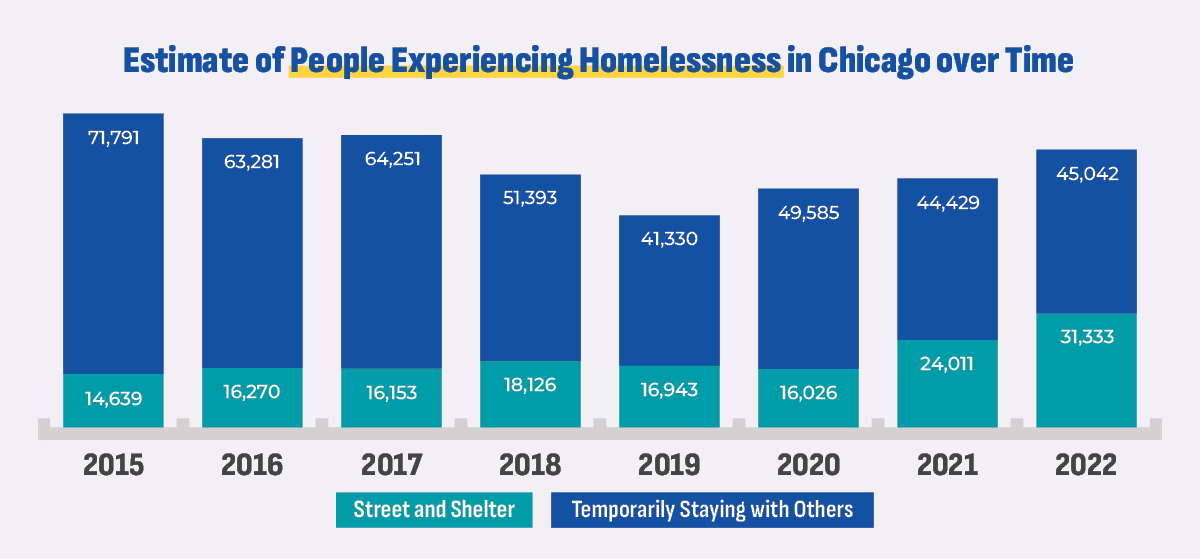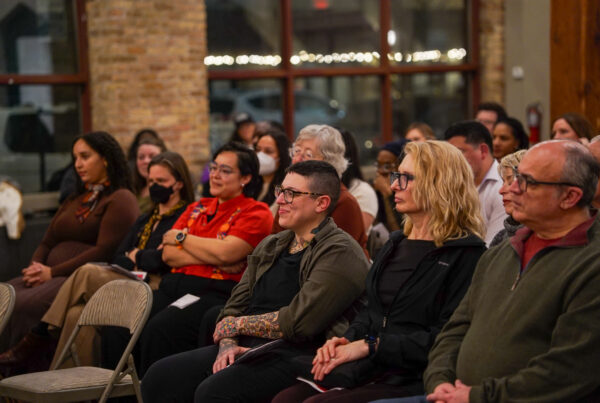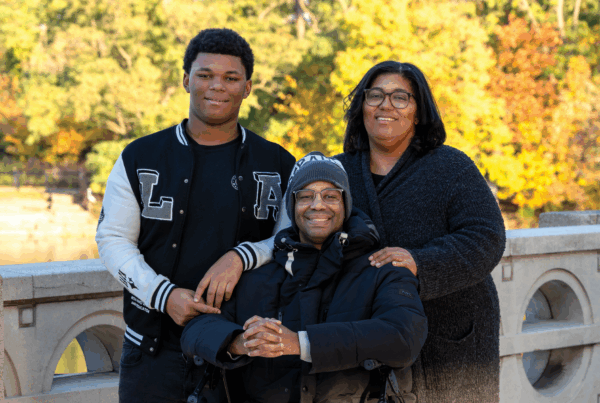
By Sam Paler-Ponce, Associate Director of City Policy
The Chicago Coalition to End Homelessness today published its 2024 report estimating that 76,375 Chicagoans experience homelessness over the course of a year. Skyrocketing housing costs, wage stagnation, and pandemic-era support rollbacks have made it increasingly difficult for Chicago families to find and keep affordable housing. This report relies on 2022 data, the most recent year of available data. These estimates should be viewed as a minimum, as they are not inclusive of the nearly 50,000 people that have sought asylum in Chicago since August of 2022.
Key Findings from the Report:
- Homelessness in Chicago is Widespread: Approximately 76,375 Chicagoans, including 31,333 experiencing street or shelter homelessness and 45,042 doubling up with family or friends, lacked stable housing over the course of 2022.
- Impact of New Arrivals: Since August 2022, nearly 50,000 asylum seekers have arrived in Chicago, with 2,970 residing in temporary shelters.
- Inadequate Federal Definitions: The Department of Housing and Urban Development (HUD) excludes those doubling up from its definition of homelessness, despite this being the most common experience for families in Chicago.
- The Point-in-Time Count is Becoming Increasingly Ineffective: It is becoming clearer that the traditional snapshot count of people experiencing homelessness on a single night is becoming increasingly ineffective. People move frequently between different forms of homelessness, and a snapshot count fails to capture the majority of Chicagoans experiencing homelessness. For every one person counted in traditional HUD Point-in-Time count, ten more people access those same homeless services throughout the course of the year.
Increase from 68,440 to 76,375 homeless Chicagoans
Homelessness in Chicago has increased from year-to-year due to a combination of systemic, economic, and social factors that compounded existing vulnerabilities. The lifting of pandemic-era safety nets, such as the expanded Child Tax Credit and eviction moratoriums, played a significant role in exacerbating housing instability for thousands of households. Families who previously relied on these supports faced mounting economic pressures, leading to a surge in demand for housing assistance and shelter services.
Additionally, shelters that reduced capacity during the pandemic to adhere to public health guidelines gradually increased their availability, leading to more individuals being counted in homeless service systems. This shift highlighted not only the growing need but also the limitations of temporary solutions to systemic housing challenges.
Simultaneously, the influx of nearly 50,000 asylum seekers to Chicago since mid-2022 has placed unprecedented pressure on the city’s housing and homeless response systems.

Upcoming influx in homelessness
As Chicago prepares to merge its new arrivals and “legacy homeless” shelter systems into a unified model on January 1, 2025, we urge city officials to adopt a stronger transition plan. While the consolidation under the “One System Initiative” is a positive step toward a streamlined approach, the current strategy falls short in addressing the real needs of our city’s most vulnerable.
In October, the city announced the unified system will offer 6,800 beds, comprised of 3,000 traditional shelter beds combined with 2,100 city-operated and 1,700 state-operated new arrival beds. In other words, two systems that once provided emergency shelter to a combined 18,000 people experiencing homelessness every night will be reduced to a capacity of 6,800 shelter beds in the new year.
To manage capacity, the city has adopted measures like diversion strategies, shelter evictions, and self-help resource guides. Many strategies, however, only push people into precarious living situations like doubling up (or “couch-surfing”) or relocating somewhere else entirely. This doesn’t solve homelessness; it just shifts the burden onto those who are already struggling, creating a cycle of instability that affects both families and the services meant to support them.
The impact on families, particularly those with school-aged children, is especially concerning. Disrupting students’ education in the middle of the school year can have long-term consequences on their academic and social development. Families need assurance that they can maintain their children’s school placements and access transportation support.
Homelessness is a test of political will
This report highlights the critical role of political leadership in addressing homelessness. Effective solutions require investments in affordable housing and inclusive definitions of homelessness that account for all Chicagoans in need.
We have the tools to end homelessness in Chicago, but it requires commitment—from our elected officials to community leaders—to make housing a priority. Ending homelessness isn’t just possible; it’s a choice we must make.
About the Chicago Coalition to End Homelessness
The Chicago Coalition to End Homelessness is a nonprofit organization dedicated to advocating for policy change, providing resources, and supporting sustainable solutions to homelessness in Chicago and across the state. CCH works to ensure every Chicagoan has a place to call home.






